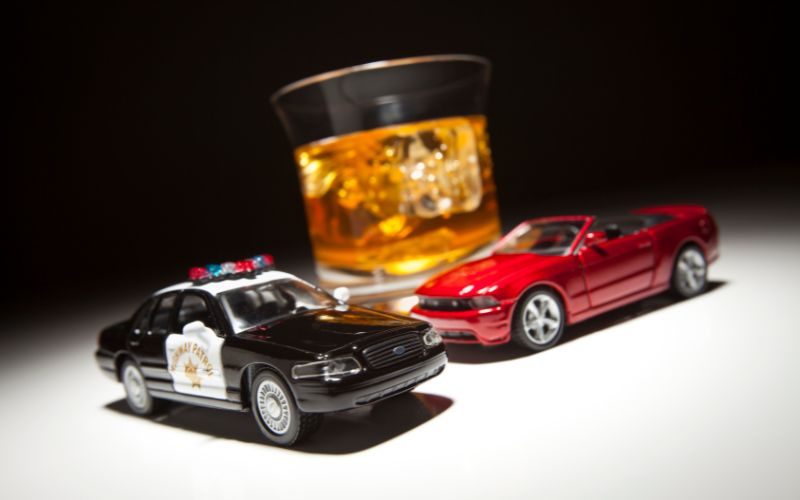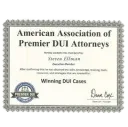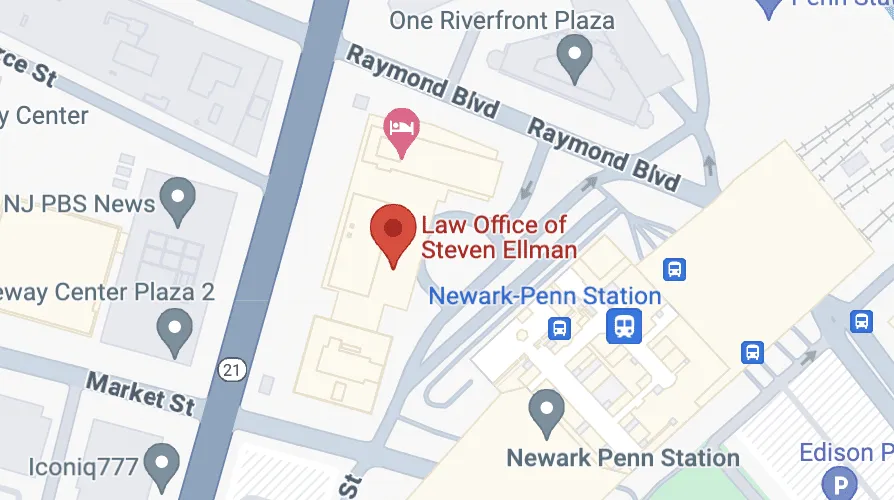

New Jersey law prohibits operating a motor vehicle while intoxicated by alcohol. A conviction for DUI carries various penalties, including jail time in some cases. However, whether you end up in jail depends on many factors.
An experienced DUI defense attorney can explain the potential consequences of a conviction on your freedom.
A driver commits DWI when their level of intoxication impacts their ability to operate their vehicle safely. State law presumes that a driver is impaired if they have a blood alcohol concentration (BAC) of 0.08 percent or more. Specific categories of drivers, such as commercial drivers or motorists under 21, have lower legal BAC limits.
Penalties under New Jersey DUI laws depend on a driver’s BAC level and the number of prior DWI offenses (if any). Other aggravating factors can increase the penalties imposed for a DWI offense.
New Jersey has a “lookback” period of 10 years for DUI convictions. A driver faces a first-time DWI charge if they have no prior convictions within the past 10 years. The penalties for a first-time DWI offense in New Jersey depend on the driver’s BAC. Penalties include fines, driver’s license suspension, and ignition interlock installation (IID) periods, which increase with higher BACs. Other penalties include the requirement to attend classes at an Intoxicated Driver Resource Center (IDRC) and pay annual auto insurance surcharges of $1,000 for three years.
A first DUI offense also carries the potential of a jail sentence of up to 30 days. However, in many cases, trial judges exercise discretion in not sentencing drivers convicted of DWI to jail terms, especially when drivers express remorse and a willingness to learn from their mistakes.
A second DUI offense within 10 years will increase penalties over a first-time offense. In addition to fines, driver’s license suspension, ignition interlock requirements, community service, and auto insurance surcharges, a second offense carries a mandatory minimum jail term of 48 consecutive hours. However, courts can impose a jail sentence of up to 90 days.
The court will consider various factors when determining the length of a DWI offender’s jail term, including the circumstances surrounding the present offense and the time between the driver’s first and second offenses. A brief interval between a first and second offense might indicate to the court that a driver failed to learn lessons and alter their behavior following their first DUI offense, resulting in a longer jail sentence.
Accruing three or more DWI offenses within 10 years carries the harshest penalties under New Jersey DUI laws. Penalties for a third or subsequent offense include:
For a third or subsequent DWI offense, trial judges have the discretion to credit the time spent in an inpatient drug and/or alcohol rehabilitation program for up to a maximum of 90 days, which goes towards the mandatory 180-day jail sentence.
Various aggravating factors in a DWI case can result in imposing a mandatory jail term or increasing an offender’s jail sentence. Common examples that can increase jail time for a DWI include:
Courts will consider the various circumstances surrounding the offender’s case when determining their sentence, such as the driver’s conduct leading to the offense, the driver’s remorse or acceptance of responsibility, or whether the driver caused a crash.
When facing the possibility of jail time, a New Jersey DUI defense attorney from The Law Office of Steven Ellman can work to minimize the penalties and consequences of your offense by thoroughly investigating your case and recovering evidence to help you fight the charge.
A possible defense might be to challenge the legality of the traffic stop or the reliability of field sobriety testing and breathalyzer results. When municipal courts have discretion about imposing a jail term, a DWI lawyer can present mitigating factors to argue for a sentence with no jail time or a jail term at the lower end of the sentencing range.
Have you been arrested for DWI in New Jersey? Hiring experienced legal representation may help you avoid the harshest consequences of a conviction. The sooner you get serious about your defense, the more your attorney can do on your behalf. Contact The Law Office of Steven Ellman today for a free consultation.
















| Monday | Open 24 hours |
| Tuesday | Open 24 hours |
| Wednesday | Open 24 hours |
| Thursday | Open 24 hours |
| Friday | Open 24 hours |
| Saturday | Open 24 hours |
| Sunday | Open 24 hours |

| Monday | Open 24 hours |
| Tuesday | Open 24 hours |
| Wednesday | Open 24 hours |
| Thursday | Open 24 hours |
| Friday | Open 24 hours |
| Saturday | Open 24 hours |
| Sunday | Open 24 hours |

| Monday | Open 24 hours |
| Tuesday | Open 24 hours |
| Wednesday | Open 24 hours |
| Thursday | Open 24 hours |
| Friday | Open 24 hours |

© 2024 All Rights Reserved. The Law Office of Steven Ellman